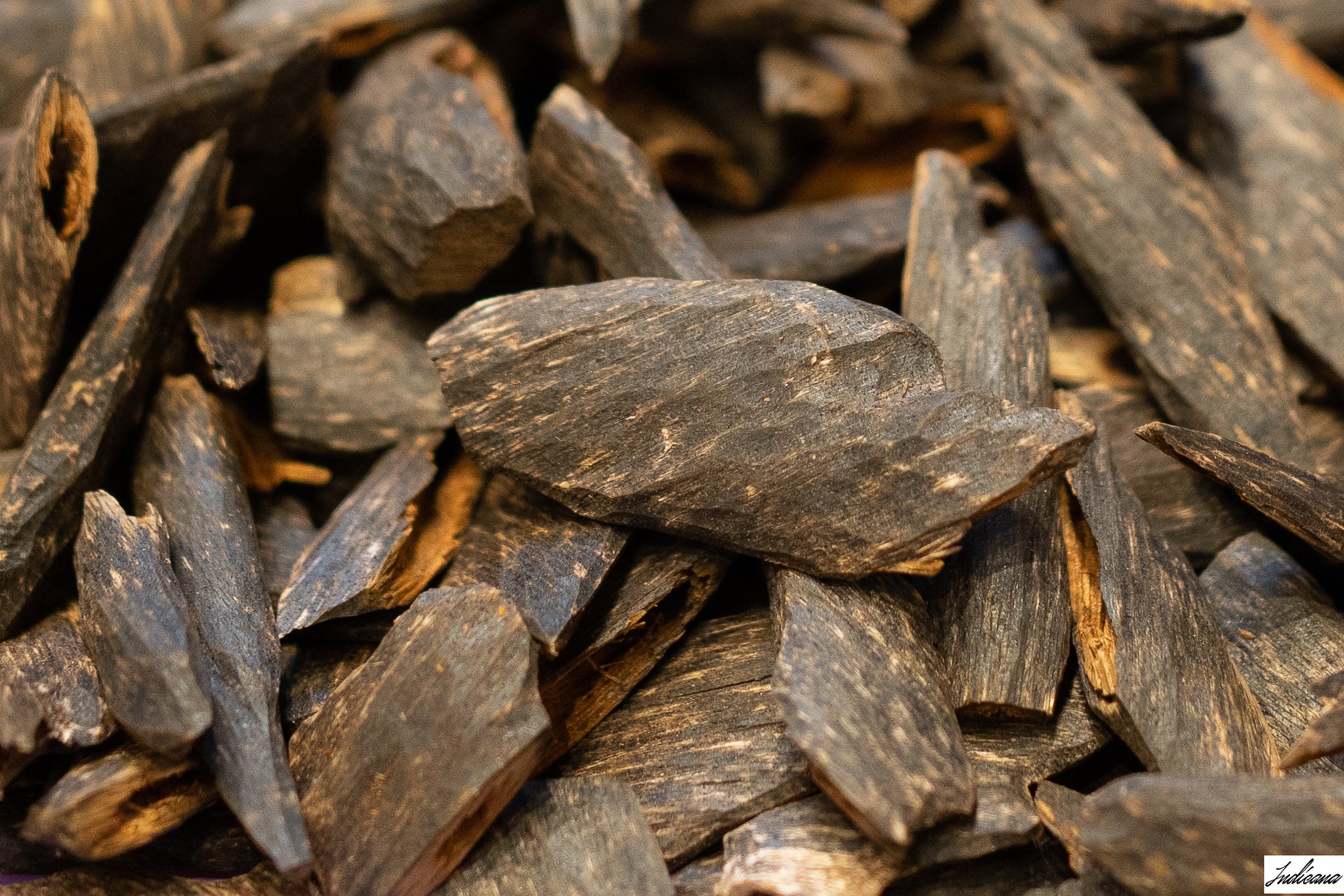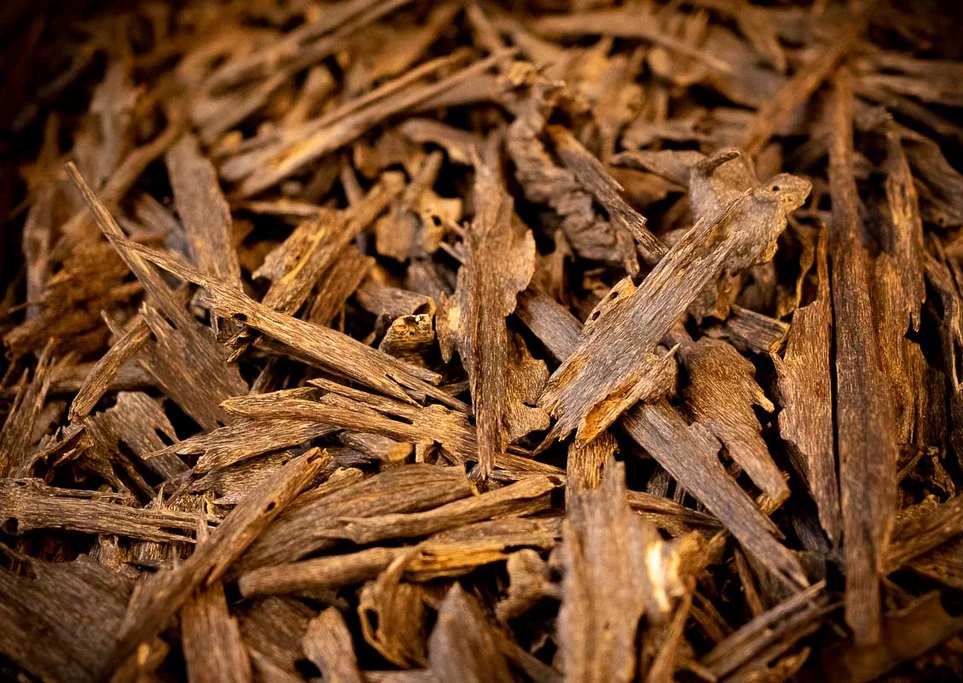What is Agarwood?

Agarwood, also known as oud or gaharu, is a fragrant resinous wood that develops in Aquilaria and Gyrinops trees when they are infected by a specific type of mold. The infection causes the tree to produce a dark, aromatic resin in response to the damage, resulting in the formation of agarwood. This resinous wood is highly prized for its rich, complex scent, which is used in high-end perfumes, incense, and traditional medicines, particularly in Middle Eastern, Indian, and East Asian cultures. Due to its rarity and the time it takes to form, agarwood is one of the most expensive natural materials in the world, leading to concerns about sustainability and over-harvesting.
Is there any Medical Property of Oud (Agarwood)?
Agarwood has been valued for its medicinal properties in traditional medicine for centuries. It is known for its anti-inflammatory effects, often used to reduce pain and swelling associated with conditions like arthritis and muscle soreness. Additionally, agarwood is renowned for its calming and sedative qualities, making it a popular choice in aromatherapy for reducing stress, anxiety, and promoting better sleep. Its soothing fragrance is believed to help induce relaxation and tranquility. Moreover, in some traditional practices, agarwood is also used to treat digestive disorders and respiratory issues due to its perceived healing properties.
Health Benefits
Agarwood, or oud, offers a range of health benefits, supported by its traditional use in various cultures. Here’s a detailed look at its specific health advantages:

Calming and Anxiety Relief
Agarwood is widely known for its calming properties, making it a popular choice in aromatherapy. The scent of agarwood has been found to reduce stress, calm the nervous system, and help with anxiety disorders. Inhaling agarwood oil or burning agarwood incense is believed to have a sedative effect, promoting relaxation and tranquility. This makes it especially helpful for those dealing with chronic stress or insomnia.
Promotes Restful Sleep
Due to its sedative effects, agarwood is often used to treat insomnia and sleep disturbances. Its calming influence on the mind and body encourages deeper, more restful sleep. Using agarwood in diffusers or applying agarwood essential oil before bedtime can help induce sleep naturally, without the need for pharmaceutical interventions.
Anti-Inflammatory and Pain Relief
Agarwood has significant anti-inflammatory properties, making it effective in reducing pain and inflammation in conditions like arthritis, joint pain, and muscle soreness. Traditional medicine systems like Ayurveda have used agarwood oil to soothe pain and ease stiffness in muscles and joints. Its anti-inflammatory benefits are particularly useful for people suffering from chronic pain conditions.
Respiratory Health
In many traditional medicines, agarwood is used to support respiratory health. It is believed to help clear congestion, ease coughing, and alleviate asthma symptoms. The warming nature of agarwood oil can help open airways and improve breathing, making it a useful remedy for respiratory conditions, especially during colds or respiratory infections.

Digestive Aid
Agarwood is considered a digestive aid in various Asian cultures. It is believed to help stimulate digestion, reduce bloating, and treat stomach disorders such as indigestion, gastritis, and ulcers. Agarwood oil is sometimes ingested in small amounts or used in massage therapy to stimulate the digestive organs.
Antimicrobial Properties
Agarwood has demonstrated antimicrobial and antibacterial properties in some studies, which may explain its use in traditional medicine for treating infections and boosting the immune system. These properties make it effective in fighting off pathogens and promoting overall immune health. This is why agarwood has been used in rituals for purification and healing.
Mental Clarity and Focus
Apart from its calming effects, agarwood is also believed to enhance mental clarity and concentration. It is sometimes used by practitioners of meditation and mindfulness to deepen focus and awareness. The oil’s unique combination of soothing yet uplifting effects helps balance emotional states while improving cognitive function.
Emotional Well-being
Agarwood has been traditionally used to promote emotional healing. Its deeply grounding scent is believed to help in alleviating emotional trauma, sadness, and grief. The spiritual significance of agarwood in various cultures is tied to its ability to cleanse the mind and soul, helping individuals achieve emotional balance and resilience.
Aphrodisiac Properties
Agarwood has been regarded as a natural aphrodisiac in some cultures due to its rich, warm, and intoxicating scent. Its use in aromatherapy and personal fragrances is said to boost libido, enhance sensuality, and improve intimate relationships by reducing stress and anxiety.
Immune System Support
Due to its reported antimicrobial and detoxifying properties, agarwood is sometimes used to support the immune system. By purifying the body and protecting it from infections, it may enhance the body’s natural defenses, promoting overall health and well-being.
Side Effects
Agarwood, also known as oud, is a resinous heartwood that has been used in traditional medicine and perfumery for centuries. While it has various benefits, its use can also come with potential side effects. Some possible side effects of consuming agarwood in various forms (e.g., oil, incense, or extracts) may include:

- Allergic reactions
- Dizziness
- Headaches
- Nausea
- Vomiting
- Sedation
- Drowsiness
- Respiratory issues




